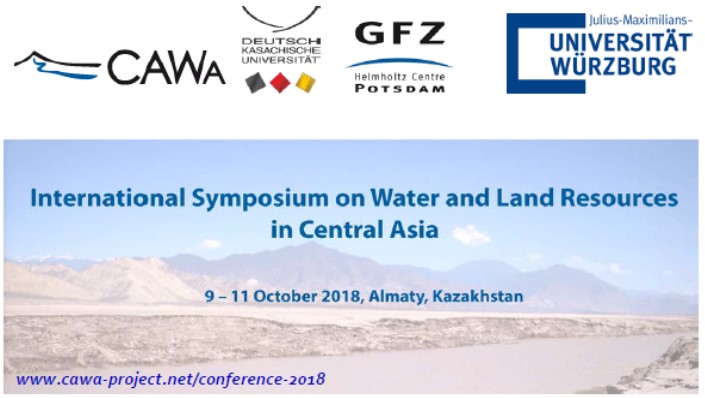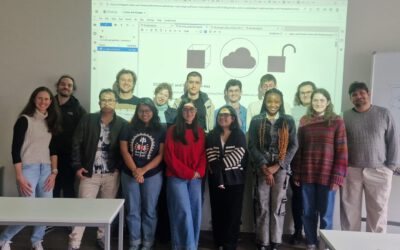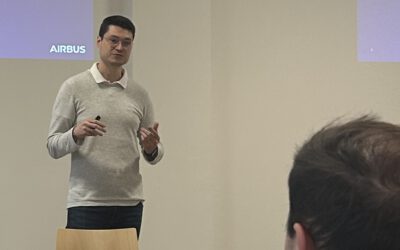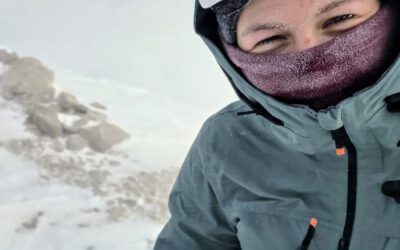The “Central Asia Water” (CAWa) project is organizing its final conference and therefore is kindly inviting you to participate into the International Symposium on Water and Land Resources in Central Asia. This conference aims to bring together the scientific community and decision-makers to discuss existing challenges on water and land resources in the region. The conference will be held between 9-11 October 2018 in Almaty, Kazakhstan. We highly welcome any contribution (oral, poster) from your side to this conference.
The CAWa project offers grants (i.e., travel expenses and costs for accommodation) for a number of participants from Central Asian countries without financial support from their home institution. Interested participants are requested to apply for conference grants via email to Astrid Krahn (krahn@gfz-potsdam.de) until May 31, 2018. Applications are expected to include a summary of estimated costs as well as a short letter of motivation and a CV. Please, forward this possibility to any eligible candidate.
Distribution of this conference announcement among your network with interest to Central Asian water, land and agriculture research is very much welcome.
For further information on the conference and structure of sessions, please see Announcement_CAWaConference_Almaty_Oct2018 and/or consult http://www.cawa-project.net/conference-2018/
We are very much looking forward to meeting and discussing with you in Almaty!
The CAWa team









